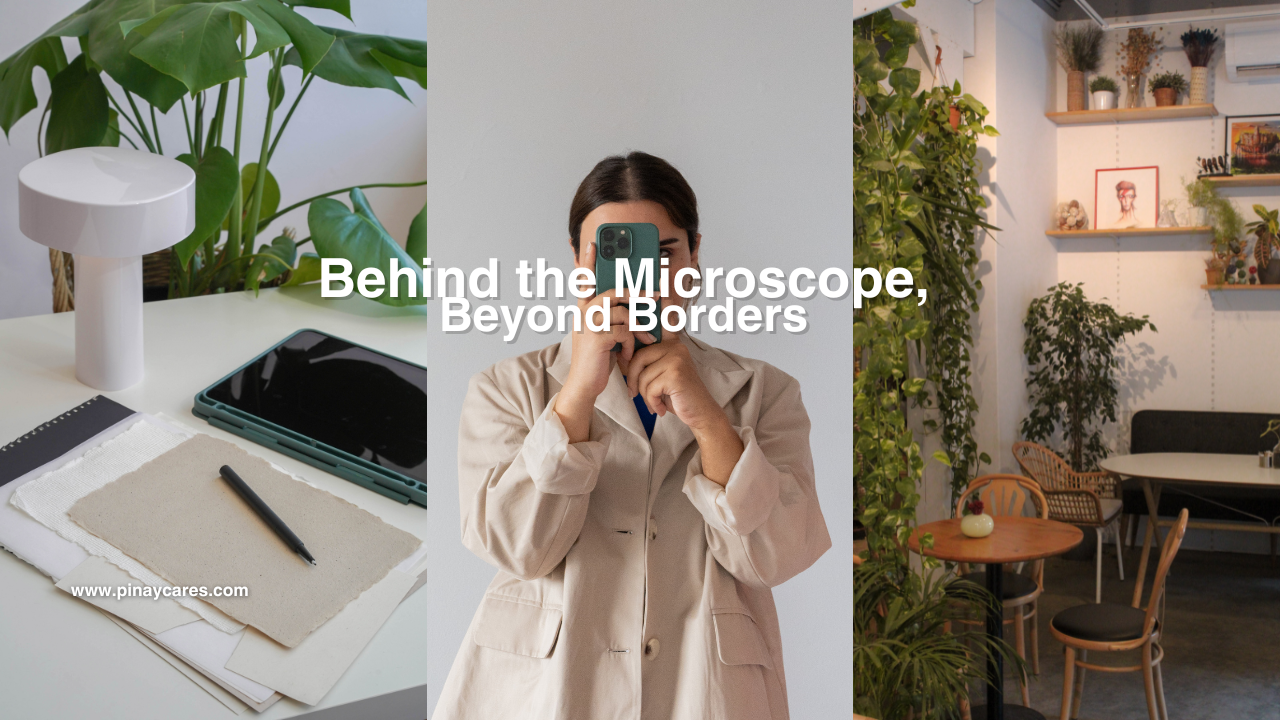Carmina had always been fascinated by science. Growing up in Batangas, she loved her biology classes and dreamed of working in a laboratory one day. While her classmates imagined becoming doctors or nurses, she was drawn to the quiet precision of diagnostics the hidden world of microscopes, test tubes and machines that helped doctors save lives. With determination, she finished her degree in Medical Technology and passed the board exam.
She worked for a small provincial hospital where her tasks ranged from blood tests to urinalysis, and even cross matching for blood transfusions. Though the work was fulfilling. the pay was meager. Her younger siblings were still studying, and her parents relied on her income. When she heard about an opening in Singapore for medical technologists, she knew it was an opportunity she couldn’t ignore.
Arriving in Singapore, Carmina was immediately struck by the modern facilities of the hospital laboratory. The machines were state of the art, and the environment was highly organized. But with the excitement came fear. She was new to this fast paced, multicultural workplace. At first, she doubted herself, worried she might make mistakes. One of her supervisors noticed her hesitation and told her gently, Accuracy is important, but confidence matters too. Trust your training.
Her daily life as a MedTech was demanding but rewarding. She handled hundreds of samples blood, tissues, swabs ensuring they were properly labeled, tested, and documented. She operated analyzers that could process tests in minutes, but she also relied on her sharp eyes under the microscope. A single error could mean a wrong diagnosis, so she worked with utmost care.
Carmina found herself working behind the scenes, unseen by most patients, yet playing a crucial role in their recovery. She remembered one particular case when her timely detection of a blood infection allowed doctors to act quickly, saving a patient’s life. Though she never met the patient, she felt immense pride, realizing her quiet work had made a difference.
But being abroad was not without challenges. The pressure of meeting deadlines, long hours in the lab, and the constant ache of homesickness sometimes weighed her down. She missed her family dinners and her mother’s comforting voice. On video calls, her father would tell her, Anak, don’t worry about us. Focus on your work we’re proud of you. Those words gave her the strength to carry on.
Her sacrifices bore fruit. With her salary, Carmina was able to send her siblings to college and help her parents renovate their old house. Each remittance she sent home carried not just money, but love and hope for her family’s future. Her younger brother once messaged her, Ate, because of you, I can finish my course. I will pay it forward someday. That message reminded her that her sacrifices were never in vain.
After three years, Carmina returned home for a short vacation. When she walked into their newly renovated house, her parents embraced her tightly. Her siblings proudly showed her their school achievements. She realized that while she spent her days in Singapore looking through microscopes, what she was truly working on was something bigger her family’s future.
Carmina’s journey as a medical technologist abroad was not just about lab results and scientific accuracy. It was about resilience, sacrifice, and the quiet strength of working behind the scenes. She proved that even without being in the spotlight, she could make an impact both in saving lives and in building her family’s dreams.



